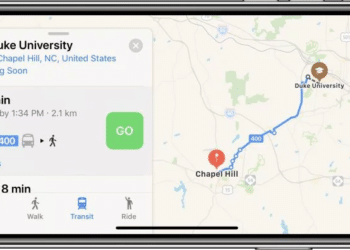Everything went as planned, with the exception of Republican Mitt Romney, who voted against his party president
US President Donald Trump was acquitted in the impeachment process against him after a Republican majority vote in the Senate. The vote was held after the Senate had previously decided, on January 31, not to call new witnesses. The impeachment – a political process in which it is decided whether or not to remove the incumbent president – began on January 17, with the formal opening of the trial in which Trump was accused of abuse of power and obstruction of the work of Congress in the complicated case involving Ukraine and his phone call to President Volodymyr Zelensky, in which he pressured him to open an investigation against Joe Biden, his potential opponent in the 2020 presidential elections. The outcome of the vote was quite predictable, since the Republicans practically did not cooperate in the trial and always defended Trump in a rather compact manner.
In the first of the two votes, on abuse of power, there were 52 “Not guilty” and 48 “Guilty”; in addition to the 47 Democratic senators, Republican Mitt Romney, who has long been critical of Trump, also voted “Guilty. In the second vote, on the obstruction of Congress, there were 53 “Not guilty” and 47 “Guilty”. For the impeachment process to continue, there would have to be a two-thirds majority (67 votes) in favor of at least one of the two charges.
The result of the vote was the one expected more or less from the beginning of the impeachment process: it was considered unlikely that the Republican senators would not support the President. The outcome had become definitively clear after the Senate had rejected the Democrats’ request to admit new witnesses to the trial and new evidence.
The main witness the Democrats wanted to bring to the Senate was John Bolton, Trump’s former National Security Advisor. According to previews of a book about to be published, released by the New York Times, Bolton was likely to tell that in July 2019 Trump blocked economic and military aid to Ukraine to ask Ukrainian President Volodymyr Zelensky and his staff to open an investigation into Joe and Hunter Biden, thus confirming the Democrats’ accusations. The minority leader of the Senate, Chuck Schumer, said that the investigation into Trump’s behavior will continue and other prominent Democrats said the president’s acquittal was illegitimate because no other witnesses were heard.
The trial concluded on February 5 was the third impeachment trial of a president in the history of the United States, after those against Andrew Johnson in 1868 and against Bill Clinton in 1999, and the third to end with an acquittal. It was also the fastest: only twenty days, compared with the five weeks of the impeachment trial against Clinton and three months of that against Johnson. Romney, on the other hand, was the first senator in the history of the United States to vote in favor of the impeachment of a president of his own party: he said he did it for reasons of conscience.
Many other Republican politicians have acknowledged that Trump put pressure on the Ukrainian government to get an investigation into Biden, but most felt that this conduct was not so serious as to remove the president from office: moreover, not far from the presidential elections, which will be in November. Trump is currently very popular with the Republican electorate: his approval rate has reached 49% and is higher than that of his predecessor Barack Obama at this point in his term of office.
Donald Trump did not speak after being acquitted but on Twitter he wrote that today he will give a speech from the White House to “talk about the country’s VICTORY on the impeachment scam. He also released a video accusing Mitt Romney of being a double agent for the Democrats and criticized the senator for losing the presidential election against Barack Obama in 2012.

























